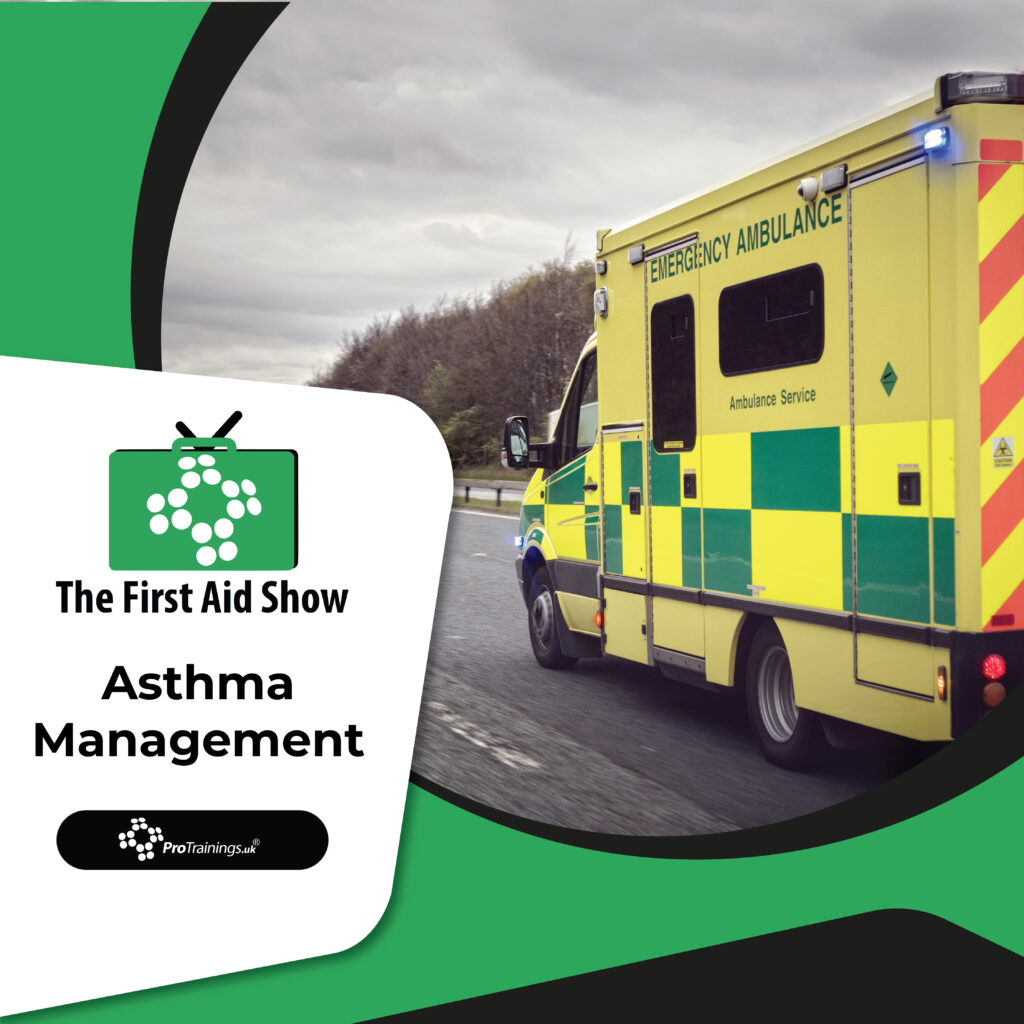Welcome to the First Aid Show: Understanding Asthma and Emergency Management
Today, we delve into the critical aspects of managing asthma, an essential skill for any first aider due to the potentially fatal nature of asthma attacks. Asthma is a common respiratory condition marked by swelling of the airways and difficulty breathing, which can quickly become dangerous.
Recognising an Asthma Attack
Asthma attacks can escalate quickly and may be life-threatening. Recognising the signs early and responding promptly is essential to manage the situation effectively. Prompt action can be the difference between a controlled medical situation and a critical emergency.
Signs of an Asthma Attack
- Difficulty breathing or wheezing
- Excessive coughing
- Struggling to speak in full sentences
Immediate Steps to Take During an Asthma Attack
Assisting with Medication
It’s crucial to ensure that the person experiencing an asthma attack has immediate access to their medication:
- Identify the Correct Inhaler: Asthmatics typically carry a reliever inhaler, often blue, that helps open up the airways quickly.
- Administration: Encourage them to use their reliever inhaler as per their asthma action plan, which may involve taking multiple puffs.
Optimising the Environment
- Comfortable Positioning: Help the person sit in an upright position, possibly leaning slightly forward to ease breathing.
- Reduce Anxiety: Stay calm and provide reassurance. Anxiety can exacerbate breathing difficulties, so keeping the environment calm is crucial.
When to Call Emergency Services
If the symptoms persist or worsen, it’s crucial to call emergency services immediately. Be prepared to inform them about the patient’s condition, including:
- The patient’s use of inhalers or nebulisers
- Past hospitalisations or intensive care admissions due to asthma
- Current treatments such as steroids
Conclusion
Effective asthma management is vital and can save lives during critical moments. Familiarising yourself with these steps will ensure you are prepared to support someone experiencing an asthma attack and ensure that professional medical help is on the way. Remember, quick and informed action is essential in managing asthma emergencies effectively.


